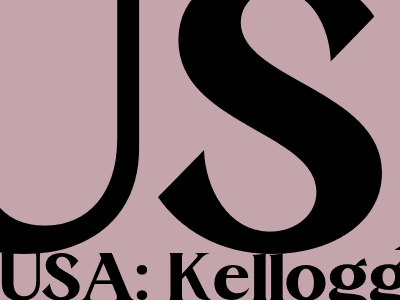
Kellogg’s Heir Demands Boycott: Toxic Dyes in Cereal
The Kellogg's Legacy
The Kellogg Company, founded in 1906 by brothers Will Keith Kellogg and John Harvey Kellogg, has a long history of promoting healthy and wholesome foods. Their flagship product, Kellogg's Corn Flakes, is a breakfast staple in households worldwide. However, a recent revelation regarding the presence of toxic dyes in their cereals has cast a shadow over the company's reputation.
The Toxic Truth
William Keith Kellogg, the great-grandson of the company's founder, recently raised alarm about the use of artificial colors in Kellogg's cereals. In a public statement, he revealed that these dyes, commonly used to enhance the appearance of food, have been linked to serious health issues, including cancer and behavioral problems in children.
Kellogg cited research conducted by the Center for Science in the Public Interest (CSPI), which found that many artificial dyes used in food, including Yellow 5 and Red 40, are derived from petroleum and have been associated with various health risks.
The Call for a Boycott
In light of this revelation, William Kellogg has called for a consumer boycott of Kellogg's products until the company removes all artificial colors from its cereals. He argues that the use of these toxic substances is a betrayal of the company's legacy and a disregard for the health of its customers.
The boycott has gained traction on social media, with many consumers expressing outrage and support for Kellogg's demand. The company has yet to respond officially to the boycott, but it is facing increasing pressure to address the concerns raised by its former heir.
Artificial Colors: A Health Hazard
Artificial food dyes have been the subject of numerous studies and debates regarding their potential health effects. While the FDA has approved their use in food, some research indicates that these dyes may pose risks, particularly to children.
A study published in the journal Pediatrics found that exposure to artificial food dyes may contribute to hyperactive behavior and attention problems in children. Another study by the CSPI linked certain artificial dyes to an increased risk of cancer.
Consumer Concerns and Industry Response
Consumer demand for healthier food options has been growing in recent years, and the use of artificial colors in processed foods is a growing concern for many. Several food manufacturers have responded to this demand by removing or reducing artificial dyes from their products.
However, Kellogg's has been slow to adapt to this trend, and its continued use of artificial colors has drawn criticism from health advocates and consumers alike. The boycott initiated by William Kellogg is a testament to the growing dissatisfaction with the company's practices.
Conclusion
The revelation of toxic dyes in Kellogg's cereals has sparked a consumer boycott and raised concerns about the health risks associated with artificial food colors. Kellogg's is facing pressure to address these concerns and align with the growing demand for healthier food options. The outcome of this controversy will have implications for the company's reputation and the future of artificial colors in the food industry.
Sources:
- Center for Science in the Public Interest: Artificial Food Colors
- Pediatrics: Food Dyes and Hyperactive Behavior in Children
- FDA: Color Additives